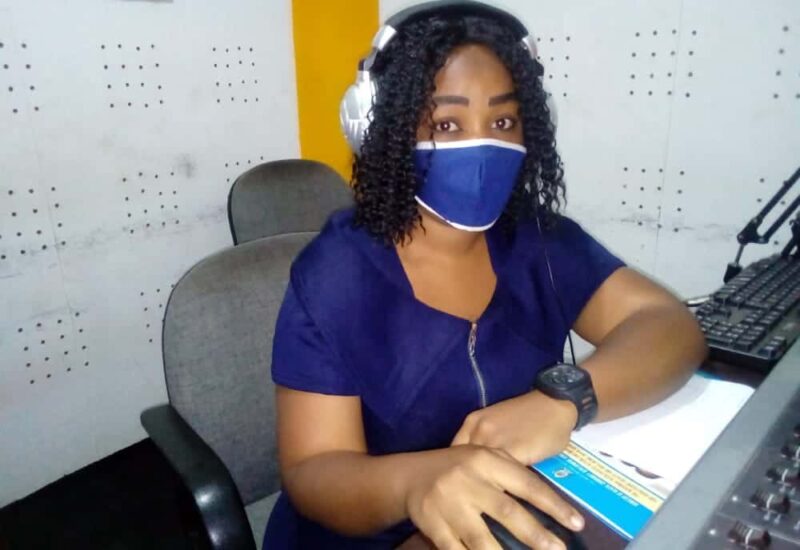Elizabeth Mwinje persisted in getting accurate information about COVID-19 prevention to her listeners in Tanzania despite stonewalling by government officials
By Temigunga Mahondo
Nyemo FM journalist Elizabeth Mwinje was having trouble finding government health experts to discuss COVID-19 because the official line was, “There is no virus in Tanzania.”
“I knew it was wrong for government experts to keep quiet while people were suffering,” said Elizabeth. “So, instead, I decided to talk to medical experts working at local private hospitals. That’s how I was able to produce and broadcast educational stories and features about COVID-19 prevention.”
After the death in March of Tanzania’s president John Magufuli (who had announced that the virus had been defeated by prayer in the country) and the swearing-in of the new president, Samia Suluhu Hassan, things did start to change. President Hassan formed a committee of experts to advise her on COVID-19 and ordered government officials and health experts to be more open and honest with their fellow citizens about the risks of the deadly virus.
However, Elizabeth says most government experts continued to decline her invitations to speak on-air, claiming they lacked official permission. Undeterred, she kept producing her programs until one day, things changed.
Government officials begin cooperating
“A regional government health officer phoned me and said they had been listening to my broadcasts and wanted to collaborate. They wanted to inform the public, through my radio programs. This was a great day for me; not only did government officials acknowledge my efforts, they were also willing to cooperate as sources for new content that I could share with listeners.”
Since the health officer’s call, Elizabeth has produced and aired seven new 45-minute programs featuring government experts who have described how the COVID-19 virus spreads, advised on ways to avoid infection, explained how the vaccine works, and answered listeners’ questions.
Nyema FM News Editor Bilson Vedastus says until now, official sources would just clam up.
“Everyone was scared. Off the record, a health expert would admit the presence of the disease and say we should all protect ourselves. But when you turned the microphone on, they’d change their tune and claim not to have such information or to be hearing it for the first time, from you. Even so, despite such denials, Elizabeth managed to produce relevant news items and programs.”
Station Manager Hezron Mwandambo says he wants such programs aired because listeners’ benefit. “One of our responsibilities is to inform people, so they can make the right decisions for their health.”
Jamila Kasike is a regular radio listener and says Nyemo FM reminds her, every day, about the importance of following health guidelines.
“Officials will often say there is no coronavirus, and so most of us do not protect ourselves properly, but Nyemo FM’s health program reminds us that the virus is here and that we must be careful.”
Nyemo FM journalist Elizabeth Mwinje received stipends and training to report on COVID-19 through Boresha Habari, a five-year media and civil society strengthening program implemented by Internews in Tanzania and funded by the United States Agency for International Development (USAID).
